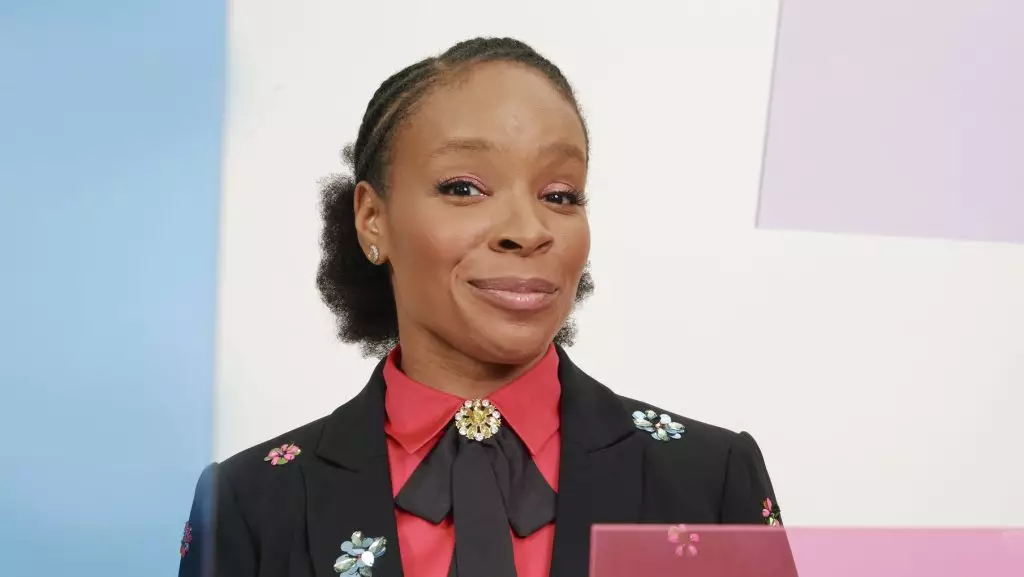The recent decision by the White House Correspondents’ Association (WHCA) to forgo featuring a comedian at this year’s annual dinner marks a significant departure from a long-standing tradition. It reflects a deeper, more pressing concern: the current climate of political division and the challenges facing journalism in America. Typically characterized by lighthearted humor and celebrity appearances, this year’s event aims to transcend these frivolities and refocus on the core mission of journalism: recognizing excellence and ensuring a free press during unprecedented times.
WHCA President Eugene Daniels conveyed this message in a letter addressed to association members, making it clear that this year’s dinner would not be a comedic affair but rather a solemn celebration of journalistic integrity and dedication. By selecting to spotlight the achievements of journalists rather than comic performances, the WHCA is signaling the need to prioritize a more serious discourse about the role of the media in democracy, especially when faced with considerable challenges from political entities.
Political Ramifications and Public Discourse
The White House’s criticism of comedian Amber Ruffin—initially announced as this year’s featured entertainer—illustrates the precarious balancing act that comedians and entertainers continue to face, particularly in politically charged atmospheres. For Ruffin, known for her sharp takes on political issues, her comedic style was too closely associated with divisive commentary, which may have further detracted from the honor of the evening.
The fact that Trump, a figure with such polarizing influence, is not expected to attend the dinner underscores the tension that has wrapped around these events in recent years. The suggestion that his supporters might hold a competing event exemplifies the fracture in public discourse, as well as the potential for splintered media narratives. Such a scenario raises questions about the future of national conversations about press freedom and the ability of journalists to cover the events of the day impartially.
Ruffin’s own comments, wherein she expressed disbelief that political life could still be viewed through the lens of normalcy, hint at the disconnect between some media narratives and the real emotions buzzing beneath the surface of American society. By steering away from comedy, the WHCA is placing emphasis on the importance of addressing serious issues head-on without the veil of humor that could minimize their impact.
Tracing the History of the Dinner
Historically, the White House Correspondents’ Dinner has merged journalism with entertainment in a uniquely American tradition. From the comedic stylings of stars like Stephen Colbert and Michelle Wolf, these events have commonly served to reflect not only the relationship between the press and the administration but also societal attitudes toward power. Yet, many performances have sparked considerable controversy. Colbert’s performance in front of George W. Bush remains a prime example of how humor can clash dramatically with reality.
In recent years, President Trump opted out of attending the dinners altogether, which was a break from precedent. However, the impact of his administration on the media landscape is still felt strongly today. The WHCA’s support of the Associated Press in its legal battle against restrictions placed on them by the Trump administration reinforces their dedication to fighting for a press free from political censorship, underscoring the longstanding tension between the media and elected officials.
Renewing the Focus on Journalistic Excellence
Daniels’ commitment to redirecting the event to honor journalistic excellence indicates a proactive approach to grappling with the current media environment, which has been under siege from various entities, including governmental administrations. In an era where “fake news” is a common phrase used against any unfavorable coverage, asserting the value of an independent press is not just essential; it is a moral imperative for modern democracy.
Daniels alluded to potential re-envisioning efforts for the dinner, hinting at an opportunity to celebrate not just the individuals who report the news but also the principles those journalists uphold. Underlying this shift is a recognition that now—more than ever—journalism must rise above the fray, shed distractions, and strive to fulfill its role as the watchdog of democracy.
While humor can often provide relief, it is essential to carve out spaces where serious conversation can take place, allowing journalists to spotlight pressing issues through their powerful narratives. The WHCA’s decision to remove comedy from the dinner represents not just a thematic shift but a necessary recalibration of priorities in light of the challenges ahead. In fostering dialogue about press freedom, the event has the potential to become a beacon for the ideals of accountability and transparency in journalism.
